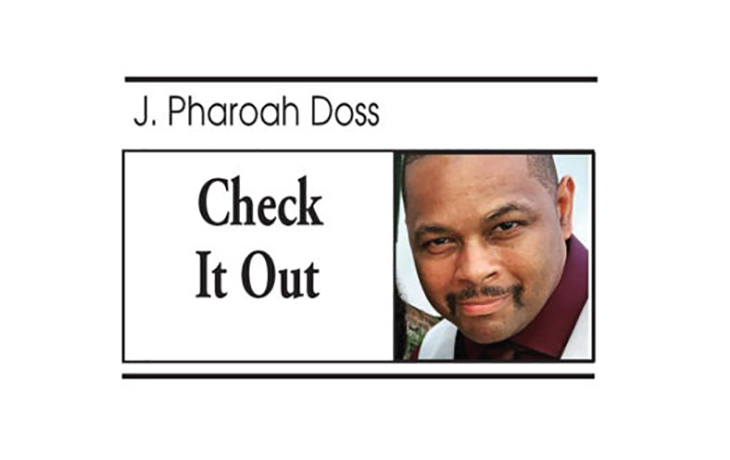Michigan State Senator Mallory McMorrow holds up a Project 2025 book as she speaks during the 2024 Democratic National Convention in Chicago. AP/Alamy
Political strategists want their candidates to articulate a high-minded vision for the future and then warn the public about their opponents’ destructive policies.
The American people heard this strategy play out following the Democratic National Convention when a CNN reporter asked Democratic representatives if their presidential nominee, Kamala Harris, needed to elaborate on her policies for the country. Three elected officials informed the reporter that people vote for a vision for the future, not for policies.
However, political strategists know that the American people will vote against the policies they are warned about. That is why we hear so much about Republican presidential nominee Donald Trump and Project 2025.
Project 2025, also known as the Presidential Transition Project, is a 900-page document that provides policy proposals for the future president. It was created by the Heritage Foundation, a conservative think tank. Democratic strategists are warning the American people that if elected, Trump intends to carry out Project 2025, which will eliminate democratic checks and balances and hand Trump unparalleled authoritarian powers.

Is any of it true? Let us sort this out.
The Heritage Foundation was formed in 1973. Its founders wanted to create a conservative version of the Brookings Institute—a think tank founded in 1916. Brookings’ objective was to make policy recommendations to strengthen American democracy, promote economic and social welfare, security, and opportunity for all Americans, and ensure a more open, safe, prosperous, and cooperative international order.
Heritage’s founders believed that think tanks like Brookings, which purported to be nonpartisan, were left-of-center and wielded too much influence over public policy by the 1970s.
Heritage aimed to be equally as influential as Brookings, but with a pro-business, anti-communist, faith-based policy focus. Between the 1980s and the turn of the century,
Republican presidents followed Heritage policy suggestions and implemented what they considered useful. Throughout these decades, the Heritage Foundation became “the brains” of the conservative movement.
However, ideological movements lack longevity because their policy prescriptions become stale as a new generation seeks fresh ideas on issues that earlier generations could not anticipate.
In 2013, Molly Ball, Time magazine’s national political correspondent, wrote an essay titled The Fall of the Heritage Foundation and the Death of Republican Ideas. Ball stated that behind the scenes, GOP staffers complained that the think tank they once looked to for intellectual ammunition had become a thorn in their side after Heritage launched a counterproductive political crusade against Obamacare.
Ball claimed that Heritage pressured Republican politicians to insist on defunding Obamacare and denounced Republicans who failed to do so. Heritage spent half a million dollars on web ads targeting 100 Republican House members who did not support the defund campaign. Representative Renee Ellmers described Heritage as “bullies.” Representative Lynn Westmoreland claimed that the think tank had “lost credibility with the people who were most supportive of them.” Senator Tom Coburn accused Heritage of “destroying the Republican party.” Joshua Culling, a conservative policy strategist, wondered, “If Heritage loses its standing as the intellectual force behind the right, what will fill the void?”
When Donald Trump won the Republican nomination and presidency in 2016, the MAGA populist agenda filled the void. The Heritage Foundation has consistently asserted that it is a conservative organization, not a Republican one, but MAGA identifies as Republicans but not as “movement conservatives.” Heritage’s influence on the Republican Party had waned.
During President-elect Trump’s transition period, CNN reporter Tal Kopan published an article titled Meet Donald Trump’s Think Tank. The headline implies that the Heritage Foundation will be the brains behind the Trump administration, as it was during the Reagan/Bush years. Kopan explained that following the 2016 presidential election, Heritage published its policy proposals in an official report titled Blueprint for a New Administration. This report went agency by agency, outlining executive orders and laws that may be implemented in each area. Jim DeMint, the president of Heritage, claimed that for the past few years, Heritage has been prepared to assist the next administration and is willing to advise any candidate who will listen, even Hillary Clinton if she is interested.
Then, unwittingly, Kopan wrote things that disproved the relationship she intended to create between Trump and Heritage. She said, “Heritage has a big footprint with Trump’s transition—though DeMint reiterated multiple times that the organization is only serving in a supportive role and doesn’t call any shots.” Then she wrote, “While Trump himself does not have a long relationship with Heritage, DeMint served in the House with [Vice President] Pence and calls him a “great friend.” Trump’s attorney general nominee, Alabama Sen. Jeff Sessions, who has been shaping the transition for months, has a long history with DeMint and the think tank.”
Because DeMint, Pence, and Sessions were friends, Kopan expected her readers to think that the conservative Heritage Foundation would wield significant power in the non-conservative Trump government. Democratic strategists are currently promoting the idea that Trump embraced Project 2025 in order to provide policy grounds for Americans to vote against him.
That’s an effective tactic, but we must recognize it for what it is—fearmongering.
Project 2025 is just another blueprint for a new administration. The Trump administration appreciated Heritage’s input in 2016, but Heritage had little if any influence during Trump’s presidency. Heritage’s Project 2025 is more about demonstrating its intellectual value to Trump and a new Republican base, who lost confidence in ideas generated in think tanks.
